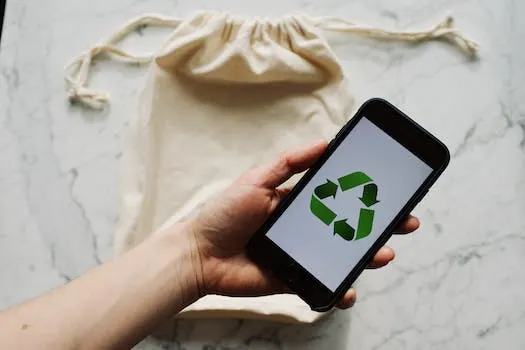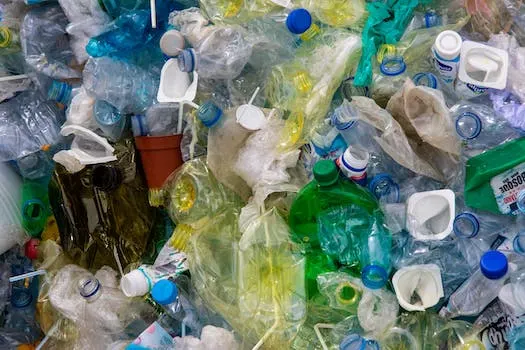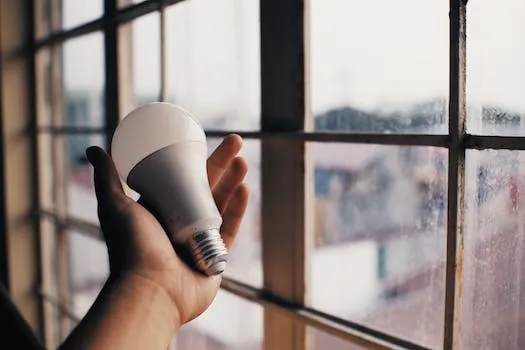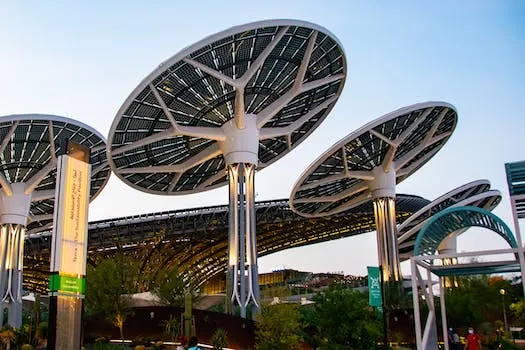
7 Surprising Items in Your Home That Can Be Recycled
recycling is an important part of protecting the environment, and there are many items in your home that you may not have thought of as recyclable. On Earth Day, take a look around your house and see what items can be recycled instead of thrown away. From plastic containers to old electronics, there are many surprising items that can be recycled.
The Environmental Protection Agency (EPA) receives numerous questions about recycling, and has broken down the answers into five categories. One myth is that most Americans recycle all they can; however, this isn't always true. Another misconception is that the arrows on a container mean it's definitely recyclable; this isn't necessarily true either. Containers must also be clean in order for them to be recycled properly; any plastic material with food residues on or in it CANNOT be recycled.
There are 11 things you should consider recycling instead of throwing away in the trash: plastic containers, old electronics such as phones and computers, paper products like newspapers and magazines, glass bottles and jars, aluminum cans like soda cans or beer cans, cardboard boxes from online orders or moving boxes, batteries from toys or other devices such as laptops or cell phones , light bulbs including fluorescent bulbs , clothing made from natural fibers such as cotton , scrap metal like pots and pans , paint cans with lids removed ,and even used cooking oil . Recycling these items helps reduce contamination when placed in the correct bin; dirty food containers should never go into a recycling bin!
By taking some time to recycle these surprising household items instead of throwing them away in the trash we can help protect our environment while reducing waste at home! Duke University reports that approximately 55% of all materials thrown away could potentially have been recycled if handled correctly - so let's do our part by making sure we're recycling everything we can!
1. Printer Cartridges
Printer cartridges are one of the most commonly discarded items, but many people don’t realize that they can be recycled. Retail stores such as Staples offer a recycling program for printer cartridges, where customers can drop off their used cartridges and receive $2 back in rewards. Additionally, many big box retailers accept ink cartridges for recycling in-store.
Various printer disposal options exist to properly dispose of used printers and avoid throwing them away in the trash. The industrial-grade plastics used in printer cartridge manufacturing take over a thousand years to decompose, making them one of the most toxic forms of waste if not recycled properly. In general, ink and toner cartridges are thrown away because people either don't know how to recycle them or don't realize that they can be recycled at all.
In the United States alone, about 500 million printer cartridges are purchased each year with an estimated 350,000 ending up occupying landfills due to improper disposal methods. To reduce this number and help protect our environment from hazardous waste materials it is important to understand how we can Recycle our old printer cartridges instead of throwing them away into landfills or other inappropriate places.
2. Batteries
Batteries are an essential part of our everyday lives, but they can also be hazardous to the environment if not disposed of properly. Fortunately, many stores now offer battery recycling programs that make it easy to recycle used batteries. Simply bring your used batteries to the store and they will take care of the rest. Every year in the United States, millions of single use and rechargeable batteries are bought, used and recycled or disposed of in the trash. This is why battery recycling is so important for human health and the environment; it ensures that toxic materials are handled with care, lessens the need for mining, and is often required by law.
For those who don't have access to a local store offering a battery recycling program, there are mail-in options available as well. Most mail-in programs will sell you a container to store used batteries that can be mailed when filled up with old ones. Used batteries have been a problem for decades from both household and industrial waste perspectives; however even with advances in technology over time, rechargeable batteries still contain toxic metals that can be released into the environment when improperly disposed. To help combat this issue New York State has implemented its Rechargeable Battery Law (Law) which requires retailers selling certain types of rechargeable batteries to accept them back for recycling at no cost when customers purchase new ones from their stores.
By taking advantage of these various battery recycling programs we can help protect our planet from hazardous materials while also reducing our need for mining new resources - making it easier than ever before to do our part in keeping our planet healthy!
3. CDs and DVDs
CDs and DVDs are often discarded without a second thought, but they can actually be recycled. Many retail stores, such as Best Buy, offer a recycling program for these items. Simply drop off your used discs and the store will take care of the rest. Additionally, some cases for CDs and DVDs can be recycled as well; these cases are generally made of plastic number 6 which is accepted by some curbside recycling programs. In addition to this, many recycling programs across the U.S. consider DVDs and CDs as e-waste which can be dropped off at special recycling events or centers that accept them for proper disposal or reuse.
When it comes to properly disposing of CDs and DVDs, there are certain steps that should be taken in order to ensure they are recycled correctly. First off, CDs cannot simply be thrown into curbside bins; instead they must be taken to a local facility that specializes in CD & tape recycling where they will then handle the process from there on out. As far as DVDs go, some thrift stores or record stores may buy used discs but it is best to sell them online if possible in order to get more money back from them rather than just throwing them away completely unused.
Finally, if you have any items around your home that you no longer need such as cassette tapes or vinyl records then don't forget about Mr Fix It Repair Shop! This shop specializes in taking old items like these and giving them new life through repair or reuse so make sure you check with them before throwing anything away! Additionally there may also be special events held near you where people come together with their unwanted items so others can take advantage of what's being offered - remember "one person's trash is another person's treasure"!
4. Clothing and Textiles
Clothing and other textiles can be recycled into new items, helping to reduce the need for virgin fibers and keep materials out of landfills and incinerators. Donating your used clothing and textiles to local thrift stores, consignment shops, or charities such as The Salvation Army is a great way to recycle these items. When donating clothes, it is important to separate them by type and label them for easier sorting. You can also set aside stained or torn items that may be repurposed in some way. Additionally, many municipalities have donation bins where you can drop off old clothes for recycling.
Goodwill, Salvation Army, St. Vincent DePaul, Savers, or other thrift stores are great places to donate old clothes that they are not able to sell in their store. By donating your used clothing and textiles instead of throwing them away you are helping the environment by reducing the need for virgin fibers while extending the life of existing ones. Furthermore, when donating clothes it is important to separate them by type so they can be sorted more easily by a charity organization or thrift store before being recycled into new items such as blankets or insulation material. Lastly, if you don’t have access to a donation bin near you then consider sending your old garments through postage-paid mailers which will help ensure they get recycled properly instead of ending up in landfills or incinerators!
5. Cell Phones
Cell phones are a ubiquitous part of our lives, but when it comes time to replace them, many people simply toss them in the trash. However, recycling cell phones is not only easy and convenient, but also better for the environment. Many stores such as Verizon offer a recycling program where you can drop off your used phone and they will take care of the rest. Every time one million cell phones are recycled, they yield 35,274 pounds of copper, 772 pounds of silver, 75 pounds of gold and 33 pounds of palladium!
Best Buy has taken steps to make cellphone recycling even easier by offering free in-store recycling kiosks in their U.S. stores with no charge to you. Motorola is also running “Race to Recycle” which mobilizes students to collect cellphones from their communities and send them off for proper disposal or reuse.
Although our phones have more recycled materials than ever before, the industry is still far from making devices entirely out of repurposed parts - this model for recycling old smartphones actually causes massive pollution due to millions of new iPhones being sold each month! To reduce this environmental impact we should all be mindful about properly disposing our old devices so that they can be reused or recycled instead ending up in landfills where they will cause further damage to our planet's resources.
6. Eyeglasses
Eyeglasses are an item that can often end up in the trash, but they can also be recycled. Many eye care providers, such as Pearle Vision, offer a recycling program for eyeglasses. Simply drop off your used glasses and they will take care of the rest. If you cannot mail in your glasses to a charitable organization or there is not a reliable drop-off location for glasses donations near you, OneSight is a great option. This charitable organization collects old glasses, recycles them and redistributes them to those in need. They have partnered with various eye care providers to make this process easier and more efficient.
Although it may be tempting to recycle prescription glasses when they break due to their wide variety of materials used in their construction, it stands to reason that eyeglasses are not highly recyclable accessories. Recycling them is possible but can be complicated; however if the frames are made of glass then they can be popped out and recycled with other glass items.
The Mr Fix It Repair Shop offers another way of reusing or recycling items that are no longer useful - by repairing them! This shop specializes in fixing broken items so that they may continue being used instead of ending up as waste material destined for landfills or incinerators - proving once again that one person's trash really is another person's treasure!
7. Electronics
Recycling electronics is now easier than ever, thanks to Best Buy's nationwide recycling program. Customers can drop off their used electronics at any Best Buy store and the retailer will take care of the rest. Not only does this help keep our environment clean, but it also helps conserve energy. Recycling one million laptops saves the energy equivalent to the electricity used by more than 3,500 U.S. households in a year!
Best Buy also offers customers an easy way to recycle their old electronics with their pickup service for up to two large products. This service not only removes and recycles your old devices, but it also helps reduce waste in landfills and conserves valuable resources such as gold, copper and other materials found in consumer electronics products.
In addition to Best Buy's recycling program, many prisons have begun offering computer recycling services as well. They would have some of their inmates that are trained to take used computers apart so that they can be recycled or reused properly instead of ending up in landfills or being thrown away into our environment where they could cause harm over time.
We all love our electronic devices; however, when we're done with them we should make sure they are disposed of properly so that we can help protect our planet from further damage caused by improper disposal methods such as throwing them away into landfills or leaving them out on streets where animals may come across them and get hurt from sharp edges or toxic materials inside these devices. Donating or recycling your old electronic devices is a great way to do your part for the environment while helping others who may need these items for educational purposes or just simply need something functional again after years of use!
Conclusion
In conclusion, there are many items in your home that can be recycled rather than thrown away. By recycling these items, you can reduce the amount of waste in landfills, save energy and help the environment. Purchase and use school supplies made from recycled products such as pencils made from old blue jeans and binders made from cardboard. Your fruit and vegetable scraps, egg shells, coffee grounds, grass clippings and leaves can all be composted while opting for durable items such as silverware, reusable cups and reusable water bottles instead of disposable ones is also a great way to reduce waste. Recycling not only reduces landfill space but also conserves energy and natural resources needed to produce new products. Did you know that a 60-watt light bulb can be run for more than 24 hours on the amount of energy saved by recycling 1 pound of steel? Reducing, reusing and recycling waste helps save landfill space by keeping useful materials out so make sure to take advantage of this opportunity whenever possible!










